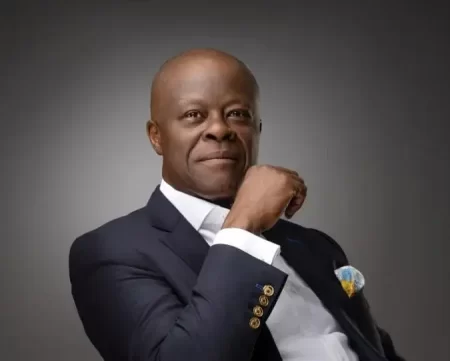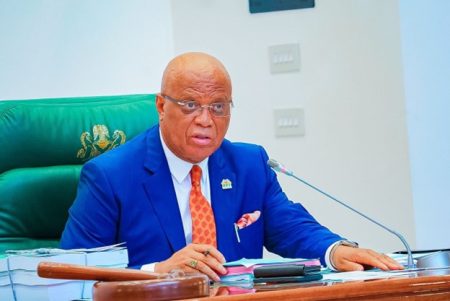
15 October 2013, Abuja – Recent revelations that the investors who have acquired the assets of the Power Holding Company of Nigeria (PHCN) have begun lobbying for another increase in electricity tariffs, has underscored the need for the Nigerian Electricity Regulatory Commission (NERC) to demonstrate enough capacity to find a balance between the expectations of operators and consumers, Ejiofor Alike writes
One of the federal government’s objectives of transferring the ownership of the power sector to private investors was to replicate the gains recorded in the telecommunications sector, where liberalisation engendered massive private investment that made mobile telephony accessible and affordable to all Nigerians.
As noted by President Goodluck Jonathan in a recent media chat, before the liberalisation of the telecommunications sector, even some directors in the civil service could not afford a telephone line.
But with the reforms introduced in the sector, both the poor and the rich now have access to mobile phone lines, as the price crashed from over N100,000 per line at the beginning of the liberalisation policy in 2001 to paltry N200 today.
Buoyed by the gains of the telecommunications reforms, the federal government enacted the Electric Power Sector Reform (EPSR) Act of 2005 to reform the Nigerian Electricity Supply Industry (NESI).
Accordingly, the EPSR created the Nigerian Electricity Regulatory Commission (NERC) to regulate the power sector and provide the legal framework for its operations. The Act further empowered the federal government, through the National Council on Privatisation, to create a holding company from the defunct National Electric Power Authority (NEPA), which gave rise to PHCN and its subsequent unbundling into 18 successor companies – six generation companies (gencos), 11 distribution companies (discos) and one Transmission Company.
Most of the six gencos and 11 discos have been sold with the physical handover of the assets being awaited. However, the Transmission Company of Nigeria (TCN) is being managed by Manitoba Hydro International of Canada, but still under the ownership of the federal government.
Clamour for Increase in Tariffs
As the physical handover of the PHCN assets to the new investors is being awaited, NERC recently revealed that the new owners had embarked on serious lobbying of the government to increase electricity tariffs. Chairman of the NERC, Dr. Sam Amadi, said the agency has been contending with pressure from the new owners of the PHCN assets, adding that one of such demands was for the increase in electricity tariffs.
The NERC scribe, who spoke through the Secretary to the electricity regulator, Mrs. Ada Ozoemena, at a recent power conference in Lagos, said the investors had premised their demand on the assumptions made by the commission in the Multi-Year Tariffs (MYTO), which they said were inaccurate.
“The new investors are already asking for an increase in tariffs and they have some reasons, which are valid. They have told us that the assumptions that went into the MYTO were inaccurate. Of course, we used 40 to 50 per cent loss in transmission. So, they are asking for an increase in tariffs. We have been holding roundtable discussions with them,” he said.
Even though Amadi assured power consumers that NERC had told the investors that any tariff increase for now is suicidal, the demand for another increase in tariffs at this early stage of private ownership of the assets needs to be realistic with a keen understanding of the expectations of operators and consumers.
However, the immediate past President of the Trade Union Congress (TUC), Mr. Peter Esele, told THISDAY at the weekend that the demand by the investors was unrealistic. He said rather than clamouring for an increase in tariffs when the power supply situation was still very poor, the new investors should first justify the intervention of the private investors in power business by ensuring stable supply within the next two years.
“What they should do is to ensure that power is stable in the next two years. If there is improvement in supply, Nigerians will be happy to pay more. But asking for another increase when Nigerians are still paying more for diesel to generate power is not realistic,” he said.
Esele said investment in power sector is a long-term investment and not short-term, stressing that the investors would not recover their investment in one day. “If you invested $100 million, will you recover the cost in one day? When telecommunications came in, the investors said the same thing, that they wanted to recover their cost but today, the sector is a gold mine; it is a money spinner. And the power sector is even larger than the telecommunications sector because even the telecoms providers need power,” he said.
A Test Case for NERC
The clamour for increase in electricity tariffs by the new investors even when they have not taken over the running of the successor companies has fueled concerns that the investors may form a cartel to levy electricity consumers and make more profit.
There is no doubt that the dilapidated state of the transmission and distribution infrastructure has made huge investments in the sector imperative, as the existing assets cannot guarantee any reasonable improvement in power supply.
Some of the distribution assets, especially in Lagos, are as old as the colonial period as electricity generation first commenced in the state in 1896 when a 20-megawatt capacity power generator was installed by the British at Ijora area, under the Public Works Department (PWD).
The distribution infrastructure, which suffered long years of neglect in the hands of successive administrations, would require replacement and upgrade before consumers witness any remarkable improvement in electricity supply.
So, even as the federal government has retained ownership of the Transmission Company of Nigeria (TCN) to take care of the transmission facilities, the private investors that bought the distribution assets now have the sole responsibility of upgrading and replacing the aging facilities, with its attendant huge capital outlay.
The huge capital outlay required for these investments by the new private investors cannot be generated under the current tariff structure, which is still not cost-reflective. The average cost of energy is estimated at above N24, but lower categories of consumers currently pay only between N4 and N22 per kilowatt hour. In fact, the R2 customers, who constitute about 80 per cent of electricity consumers, pay only between N11.50 and N12.30, depending on their location.
Indeed, these tariffs are also far below what Nigerians spend on self-generation, using diesel and fuel powered generating sets. Therefore, for power to improve significantly in the country, an upward review of tariffs to near cost-reflective levels has become imperative.
But this early agitation for an increase by the new investors, who may soon form a trade group or cartel to put pressure on regulators, is ill-timed. It is also potentially a test case for NERC, which has not demonstrated enough competence to regulate a post-privatised electricity market.
NERC has indeed wavered since the beginning of the power reforms, engaging in policy somersaults and thus sending conflicting signals on its capacity to regulate a privatised power sector.
For instance, under the new tariff structure that took effect July 1, 2012, NERC had stated that prepaid meters would be issued free to customers as the cost had been factored into the new tariffs. But a few months later, NERC made a U-turn, saying consumers would pay connection fees, which were as high as the market cost of the meters.
However, when NERC’s new position was greeted with public discontent, the agency again shifted its position, saying the new fees would be a sort of credit facility by the consumers to the distribution companies, which customers would recoup when paying tariffs.
NERC increased tariffs on July 1, 2012 but barely one year later, it further reviewed it upwards by increasing the fixed component of the tariffs, which must be paid by consumers, whether there is power supply or not.
Customers are not the only people affected by NERC’s apparent inconsistency as the new investors have also complained that the basic assumptions on which NERC based the MYTO were inaccurate. The regulatory agency is yet to dispute the parameters used by the investors in their assessment of MYTO.
The investors also argued that NERC had promised to come up with the methodology for defining tariffs and the transition market arrangement immediately after the investors had made full payment for the assets. But the investors said nearly two months after they paid for the assets on August 21 NERC is yet to come up with interim solutions on how to operate.
Going forward, NERC must strike a balance between the desire of the new investors to meet pent up demand for electricity by upgrading the aging distribution assets and the moral justification for paying slightly higher tariffs in the face of epileptic supply. It is a fine balancing act, which NERC has to manage with the utmost care.
The need for improved revenue generation to roll out infrastructure by the distribution companies and at the same time service their loans with the banks cannot be ignored. At the same time, NERC should be firm in its resolve not to give in to regulatory capture by succumbing to all the demands of operators to the detriment of consumers.
As NERC works on the modalities for the Transition Electricity Market (TEM) arrangements, the opportunity presents itself for concerted negotiations by NERC and the operators to arrive at a win-win for both the operators and consumers.
Esele is however upbeat that NERC has the capacity to regulate the sector, adding that the Nigerian Communications Commission (NCC) had experienced similar challenges, which it later surmounted.
“Initially, we thought that portability would not work. But when the NCC put its foot down, we discovered that it was the service providers that did not want it to work and it was made to work. These investors think that Nigeria is where anything goes. So, NERC has the capacity to put its foot down and do what is right. If they are lobbying, NERC has to put its foot down and do what is best for Nigerians. They (NERC) should stop complaining that those people are lobbying and do their work,” he said.
But unlike the NCC, a tougher task awaits NERC, as the NCC took 12 years to introduce number porting in the telecoms sector. Also, the telecommunications market, which offers consumers cheap limitless choices from numerous service providers, is potentially different from the electricity market, where a customer is confined to one geographical area, at the mercy of only one distribution company.
– This Day


